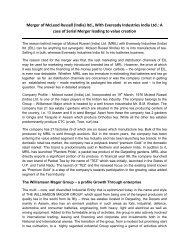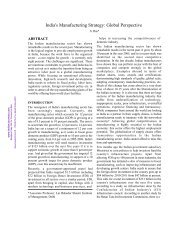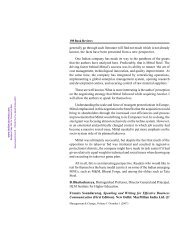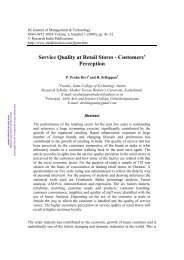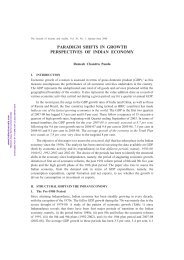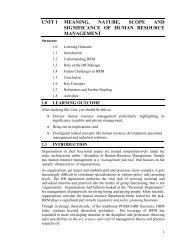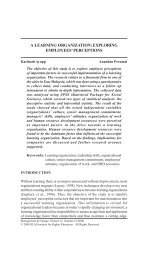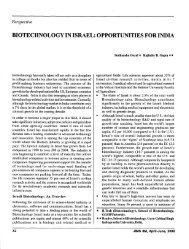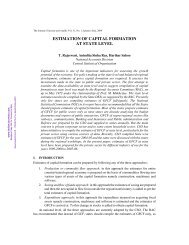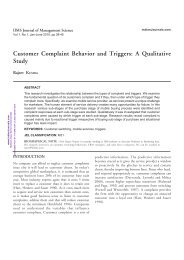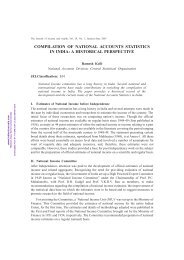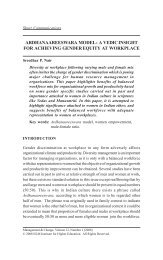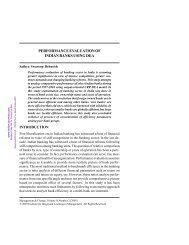Cultural Globalisation - Mimts.org
Cultural Globalisation - Mimts.org
Cultural Globalisation - Mimts.org
Create successful ePaper yourself
Turn your PDF publications into a flip-book with our unique Google optimized e-Paper software.
K SYAMALAMMA AND P KRISHNA MOHAN REDDY<br />
www.IndianJournals.com<br />
Members Copy, Not for Commercial Sale<br />
Downloaded From IP - 115.248.73.67 on dated 27-Dec-2010<br />
a global culture”. His perspective emphasises a newfound consciousness as well as<br />
physical compression of the world (ibid, p 8). This of course does not necessarily<br />
mean a uniform and homogenous culture worldwide, as any such claim would be<br />
impossible to sustain (Clark, ibid, p 23). In a more modest version, it implies that<br />
cultures become “relativised” to each other but are not “unified or centralised”<br />
(Waters, ibid, pp 125–6). Thus, cultural globalisation may be regarded as “unity in<br />
The expansion of Europe<br />
brought about the economic and<br />
technological unification of the<br />
globe and European-dominated<br />
international society of the<br />
nineteenth and early twentieth<br />
centuries first expressed its<br />
political unification. During the<br />
world wars however, a deeper<br />
and more widespread process of<br />
cultural Americanization was<br />
accelerated.<br />
diversity”. Clark also points to the<br />
diversity of views and perceptions of<br />
globalisation, differentiates five<br />
interpretations of globalisation (Waters,<br />
ibid, p 24) and his first school partly<br />
focuses on cultural globalisation.<br />
According to him, globalisation has<br />
been shaped by the major international<br />
trend of the past several centuries namely<br />
Westernisation. That is, Europe’s<br />
economic and military incorporation of<br />
the world created the precondition of<br />
an integrated global system. Hedley Bull<br />
and Adam Watson (Eds, The Expansion<br />
of International Society, New York: Oxford University Press, 1984) opine that “it<br />
was the expansion of Europe that first brought about the economic and<br />
technological unification of the globe (and) it was the European dominated<br />
international society of the nineteenth and early twentieth centuries that first expressed<br />
its political unification”. Historically, this had been true since the era of<br />
industrialisation and colonisation, as the rest of the world was influenced by<br />
European culture.<br />
During the world wars however, a deeper and more widespread process of cultural<br />
Americanization was accelerated. As Akira Iriye (“The Globalizing of America 1913–<br />
1945”, The Cambridge History of American Foreign Relations, Vol III, Cambridge:<br />
Cambridge University Press, 1993, p 113) points out, “America … was more than<br />
ever before the symbol of the new material and popular culture”. The automobile,<br />
the motion picture and the radio were the instruments of this process. As a result<br />
20<br />
WORLD AFFAIRS WINTER 2009 VOL 13 NO 4



